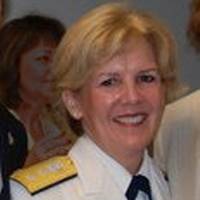Cruise Industry Compliance Tips: Facial Recognition Technology
In the past few years, the commercial use of facial recognition technology has advanced at an explosive rate, expanding into numerous industries and trades. For instance, facial biometrics is increasingly relied on by airlines and airports across the globe; a similar trend is starting to take hold in the maritime industry, particularly the cruise sector.While this expansion is occurring, states and cities across the country—as well as the federal government—are attempting to enact strict laws regulating the use of facial recognition technology by commercial entities.
Jones Act Offshore: Navigating in 2013

Following the hubbub created in 2009-2010 by U.S. Customs and Border Protection’s (CBP) proposed modification and revocation of certain Jones Act ruling letters pertaining to offshore operations, all was relatively quiet in 2011-2012 with respect to Jones Act offshore issues. Indeed, in the aftermath of the tragic Deepwater Horizon incident in 2010, which included the implementation of more prescriptive regulatory and environmental requirements and a deepwater drilling moratorium…
Action-Packed WISTA Luncheon at CMA

WISTA Annual Luncheon at CMA’s Shipping 2012 presents action-packed program. Bahamas signs Washington Declaration, lessons learned from Deepwater Horizon, and a Flag Ceremony farewell to USCG Vice Commandant Brice O’Hara. WISTA USA President Jeanne M. Grasso presided over an action-packed program at this year’s WISTA USA Annual Luncheon held at the beginning of CMA’s Shipping 2012 conference in Stamford, Connecticut. “I don’t think we could have made this year’s luncheon more exciting, interesting, or robust”, stated Grasso, a Blank Rome LLP Partner and President of WISTA USA.
RADM Mary Landry to Keynote WISTA Luncheon

WISTA USA President Jeanne M. Grasso said that Rear Admiral (RADM) Mary Landry (United States Coast Guard (USCG) Retired), the Federal On-Scene Coordinator during the first days of the Deepwater Horizon incident, will be the keynote speaker at this year’s WISTA luncheon held on March 19th at the beginning of the Connecticut Maritime Association’s Shipping 2012 conference. This is the 7th year that WISTA has held this luncheon, which kicks off the annually successful CMA event.
Customs Withdraws Jones Act Offshore Rulemaking
By Blank Rome Maritime: Jeanne M. Grasso, Jonathan K. Waldron, Thomas Z. On November 15, 2010, U.S. Customs and Border Protection (CBP) withdrew an Advance Notice of Proposed Rulemaking (ANPRM) regarding the transportation of merchandise and equipment by foreign-flag vessels engaged in the support of Outer Continental Shelf (OCS) activities. The ANPRM was under review by the Office of Management and Budget (OMB) when it was withdrawn prior to publication in the Federal Register. As discussed in more detail below, this would appear to mean that most of CBP’s OCS-related rulings issued over the last 30 years remain valid as precedent, subject to CBP review on a caseby-case basis when it considers new requests for rulings by industry for future projects.
Grasso Elected President WISTA USA
At its annual general meeting in in May, Jeanne M. Grasso was elected President of the Women’s International Shipping and Trading Association (WISTA) . As President of WISTA USA, Ms. Grasso will serve as a member of the six-person elected board, which includes: Vice President Linda Turnbow (Ocean Shipholdings, Inc.); Treasurer Kathleen Haines (formerly of OMI Corporation); Membership Secretary Parker Harrison (American Steamship Owners Mutual Protection and Indemnity Association, Inc.); Recording Secretary Julie D. Kuchta (Bowen, Miclette & Britt); and National WISTA Association liaison, Mary T. Reilly (Hill, Betts & Nash, LLP). Grasso, a respected and active member of the maritime community, has held leadership positions in various maritime organizations.
Legal Beat: Criminal Enforcement in the Marine Industry: The Latest Trends
By Jeanne M. Grasso and Allison L. In the past several years, federal prosecutors increasingly have devoted time and resources to pursuing vessel owners, operators, crewmembers, and shoreside employees who are involved in illegal discharges at sea. Discharges at sea have long been recognized as a serious threat to the marine environment and, as a result, there is a plethora of laws in the United States regulating discharges into waters of the United States. These statutes include the Clean Water Act, the Refuse Act, the Oil Pollution Act of 1990, the Act to Prevent Pollution from Ships (APPS) (implementing the International Convention for the Prevention of Pollution from Ships or MARPOL), and the Ocean Dumping Act, among others.
Congress Voids Certain Ad Valorem Duties on Ship Repairs
By Jeanne M. Charles T. Trade and Technical Corrections Act of 2004 (the Act), signed into law on December 3, 2004, contains a provision that reverses a final rule, issued by the Bureau of Customs and Border Protection (CBP) in 2001 (Final Rule; 66 Fed. Reg. 16392 (March 26, 2001)), that subjected repairs made to U.S.-flag vessels while on the high seas to declaration, entry, and duty requirements. Simply put, the Act expands the list of items that are exempt from the 50 percent ad valorem duty requirement contained in the Vessel Repair Statute (19 U.S.C. § 1466) and, as a result, could possibly save owners and operators of U.S.-flag vessels large sums of money.
The Seaman's Manslaughter Statute: An Old Tool Being Used Anew
By Jeanne M. Over the last ten or so years, criminal prosecutions have become commonplace in the maritime industry. The most common prosecutions stem from environmental violations, but often also include charges of false statements, conspiracy, and obstruction of justice. Over the last several years, however, a new trend has begun - that of prosecutions under the Seaman's Manslaughter Statute. These prosecutions have come to the fore because of the Staten Island Ferry incident, which occurred in 2003, where the Seaman's Manslaughter Statute was used to extract guilty pleas from the pilot and a shoreside official. History of the Seaman's Manslaughter Statute.









